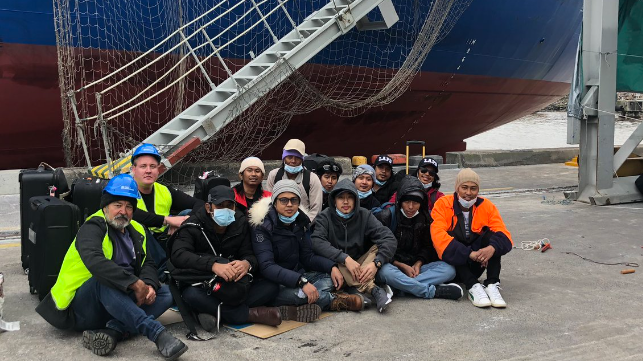AMSA: No More Keeping Seafarers Aboard Past 11 Months

It might be more difficult to carry out crew changes in the COVID-19 era, but that is no longer a valid excuse for vessel operators to keep seafarers on board for a year or more, the Australian government warned on Monday. The nation's maritime regulator plans to fully enforce the Maritime Labor Convention's limit on duration of service beginning in March.
Under the MLC, the maximum length of time that a seafarer can serve aboard a vessel continuously is 11 months. Due to the challenges of COVID-19 travel restrictions and border closures, port state regulators - including the Australian Maritime Safety Authority, or AMSA - have taken a flexible approach to compliance with the limit. This has allowed some operators to retain seafarers working aboard for periods of 12-15 months or longer.
AMSA's general manager of operations, Allan Schwartz, said Monday that the agency does not see keeping seafarers on board ships for longer than 11 months as a sustainable business practice going forward. Australia will enforce the MLC limit as written beginning on February 28, 2021.

that matters most
Get the latest maritime news delivered to your inbox daily.
“In our view there has been sufficient time for ship operators to adjust to the COVID-19 world and develop new plans for seafarer repatriation and crew changes,” Schwartz said.
“Seafarers have shouldered a heavy burden during the COVID-19 pandemic, maintaining global trade and our keeping our economies moving by delivering the vital supplies that we all need. But it has come at a personal cost to the seafarers who have spent longer on board ships, unable to take shore leave due to mandatory quarantine and separated from their friends and families. It’s time the seafarers are recognized for their efforts and we all make the effort to get them home on time."
The crew change challenge has many facets. The cost has approximately doubled due to higher airfares and mandatory hotel stays, reaching about $4,000 per swap. The logistical difficulty and the amount of staff time required to make arrangements have increased as well. Not all port states permit crew change: at present, about two dozen have permissive seafarer transit policies and 80 more allow travel with restrictions. According to bulker shipowners' association INTERCARGO, some bulker charterers are also forbidding crew change during the charter period, even when the shipowner agrees to bear the costs.
